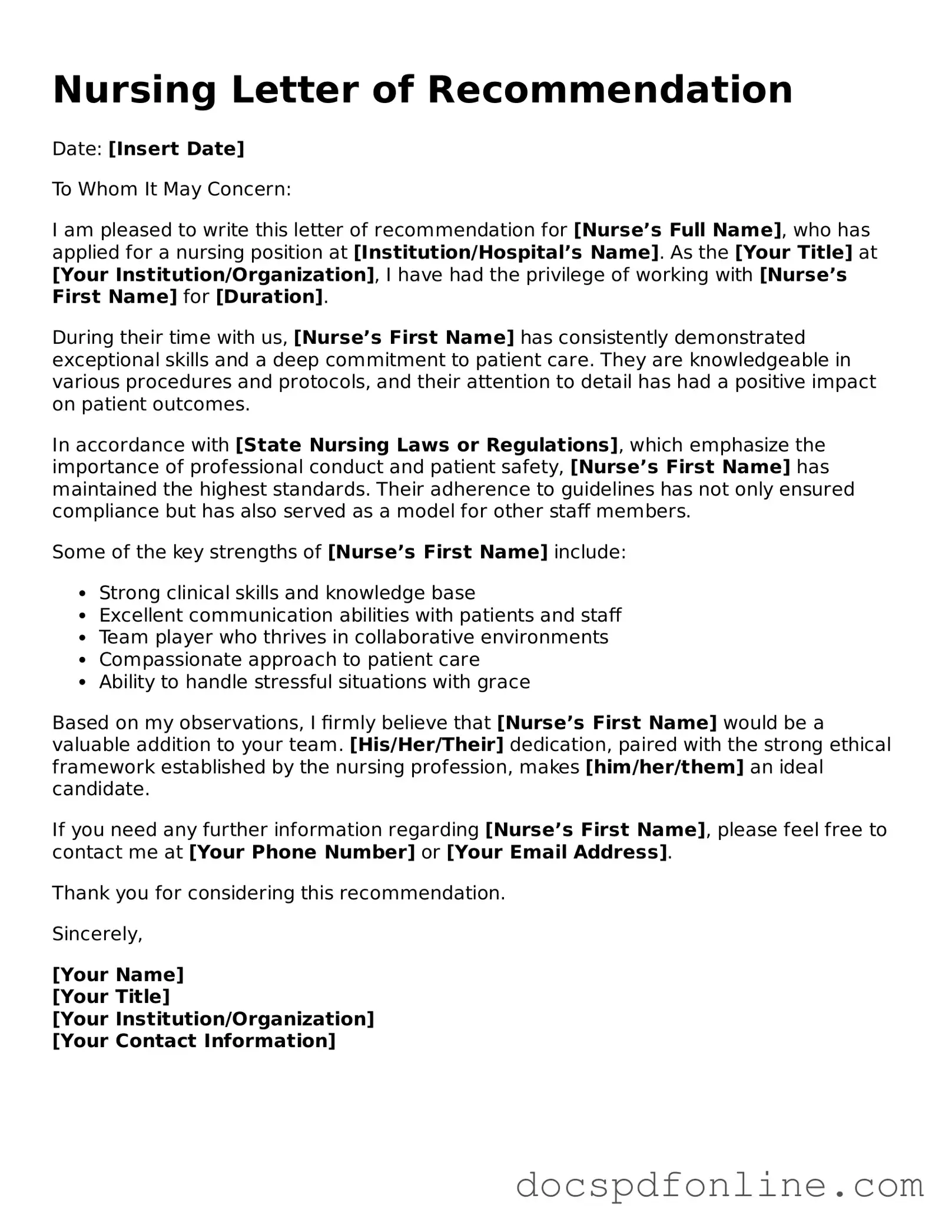Attorney-Approved Nursing Letter of Recommendation Document
The Nursing Letter of Recommendation form is a crucial document that supports an aspiring nurse's application by providing insights into their skills, character, and professional experiences. This letter, typically written by a supervisor, educator, or mentor, highlights the candidate's qualifications and suitability for nursing roles. A well-crafted recommendation can significantly enhance a candidate's chances of securing a position in a competitive field.
Launch Editor Now

Attorney-Approved Nursing Letter of Recommendation Document
Launch Editor Now
Save time — finish this form fast
Finish Nursing Letter of Recommendation online — edit, save, download made easy.
Launch Editor Now
or
↓ PDF File
